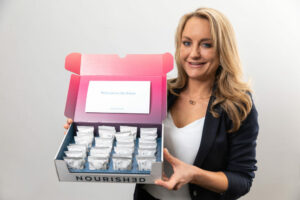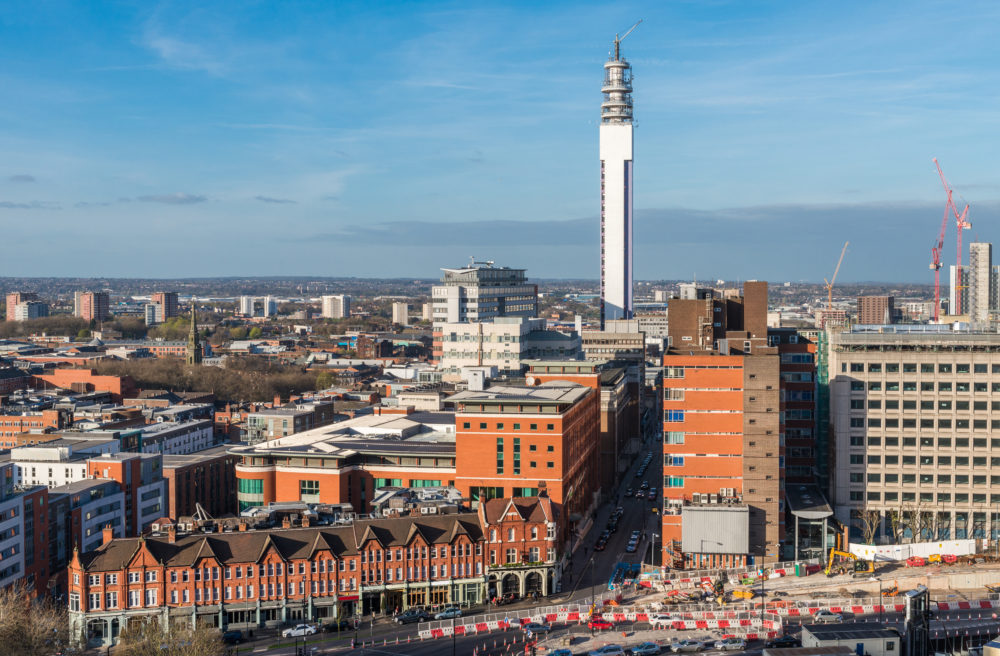If you’re thinking of alternatives to London for starting your business, you might be considering Birmingham.
In 2018, 18,590 businesses were created there and it’s the most popular destination for those moving out of the capital last year.
In this year’s Birmingham City Council update, businesses are reported to have a three-year survival rate of 51.9pc. What’s more, despite economic uncertainty, companies felt generally positive about conditions in Birmingham.
Is it really a prime spot for business, though? First, let’s take a look at some vital stats.
Population
Mid-year population figures estimate that 1,141,400 people live in Birmingham. A majority of 64.3pc are working age, 22.8pc are children and the remaining 13pc are pensioners. It has the highest percentage age of people under 20 of any core city at 28.6pc and with four universities, you’ve got plenty of access to young talent.
Crime rate
There are conflicting studies around whether Birmingham is a safe or an unsafe city. Police statistics say that in the year ending December 2018, the crime rate in Birmingham was lower than average (95.69 per 1,000 population) compared with similar areas like Manchester (172.77), Leicester (121.45) and Liverpool (120.38).
House prices
According to Rightmove, the average house price is £202,481, 5pc cheaper than last year.
Tourism
Figures from the West Midlands Growth Company show that Birmingham had a record 41.8m tourists in 2017, forking out an impressive £7.1bn in spending. It’s grown by over 50pc in the last five years, more than any other part of the UK.
Transport links
Birmingham is well-connected by bus. You can pay using Swift Pay As You Go which you can use as a cashless card for single, return or day travel on the bus or tram.
Snow Hill Station has rail services to Solihull and Worcester and a metro towards Wolverhampton. The tram runs to Bull Street in the City Centre, Corporation Street and New Street Station.
Speaking of trains, Birmingham New Street Station is the main port for UK-wide train journeys, travelling to cities including Plymouth, Dundee, Leeds, Cardiff and London.
Birmingham Airport is based seven nautical miles east southeast of the city. Flights cover over 150 domestic and international destinations including Aberdeen, Frankfurt, New York and Istanbul.
Funding
There are a huge number of funding opportunities. West Midland combined authorities provides apprenticeships (check) and support locally. Plus, we’ve got training and the Government-funded Solihull Enterprise. GBSLEP growth hub provides funding opportunities and grants too.
Read: 150 small business grants you can apply for right now
What the businesses have to say about starting a business in Birmingham
It’s one thing taking a tip from the figures, but what do the people who have actually set up the businesses think? We find out more.
Melissa Snover, founder and CEO of Nourish3d, a firm which 3D prints vitamins, tells us why Birmingham is the hotspot for starting a new business.

I chose Birmingham as our base for Nourish3d because there are three fantastic universities within 10 miles (Aston, UoB and Birmingham City University) which all have 3D-printing programmes and we wanted to be close to the experts so we could create the best, most innovative product possible.
Also, I’m originally from the US, and the vibe of Birmingham reminds me of Brooklyn before it exploded. You can feel it in the air that this is the perfect time for a business to get established here! There is an awesome energy, particularly in Digbeth where we are located, and there are tons of other start-ups based here. This makes it the ideal environment for new and growing businesses.
The consumer market in Birmingham is extremely diverse too. It is a melting pot of cultures and demographics, which makes it an awesome place to test new ideas.
As we are growing at such as fast rate, we are constantly recruiting at the moment. We have been extremely pleased with the level of talent that we have coming through and we have built a great team.
‘Dragon’s Den was a great learning experience’
While the episode of Dragon’s Den that I participated in was aired this year, it was actually filmed in May of 2018. As all entrepreneurs know, everything moves extremely quickly when you’re building your own business. The filming seems like a long time ago now and at the time we were still very much still operating as my previous business, Katjes Magic Candy Factory, which custom 3D-printed sweets for the likes of Nickelodeon. Now we have evolved to become Nourish3d.
We were approached by the Dragon’s Den team to go on the show and at the time we were extremely flattered. It was a huge undertaking from both a time and commitment perspective for myself and my team, but it was a great learning experience. It helped us understand that we needed to look at the structure of our business if we wanted to branch out to become a global disruptor in health and nutrition – and for that I am grateful.
Thinking of setting up in Birmingham?
Do it! Birmingham is better value than London, it has a great talent pool and will soon be home to the HS2, meaning it will first become a commuter city for London then maybe even one day a bigger hub for business than the capital – you never know!
Eman Al-Hallawi tells us why she decided to re-launch her business, Entec Si, in Birmingham.

We were originally based in St Albans, but we decided to relocate to Birmingham as our first contract was there. More and more of our clients are in the Birmingham area so it made sense to us to move here. Even though we work nationally, a lot of our work is based here, too.
It’s a central location which is provisioned for clients. You can see by the number of cranes that there’s a lot of growth and investment in the area. HSBC is based here, HS2 is going to be here and we’ve got an important library in Birmingham.
The city is tied to business growth – launching here is the best decision we’ve made in years.
A city of transformation
I came to university here in 1987 and never left. Since then it has seen a massive transformation. It’s a lifestyle and career city, a great place for socialising. We’ve got an amazing choice of theatre and restaurants in a relatively small area.
A big contingent of people are based around Birmingham and the region. It’s ideal for social networking (and Michelin-starred restaurants) while still being able to get to the countryside quickly. The community is great – everyone knows everyone. You’ve got a real balance between city and personal life.
Sourcing talent is a big challenge across the country. The recruitment of senior people has been steady. We recruit for cultural and value-based fit first and skills and experience second. We’re addressing recruitment needs by developing our own staff, really more of a grassroots approach.
Birmingham has got universities so there is talent available, the best option is getting them early. We tap in through apprenticeships, placements and access to universities and colleges. We’re making the most of what’s available and benefiting from the outflux from other cities.
What we’ve found is that the networking opportunities are more useful than the financial ones. It’s how we were introduced to our accountant and to HSBC.
Popular and growing sectors
The professional services sector (particularly legal and financial) is big. Production is growing hugely as are the marketing and media industries. It goes hand-in-hand with rail and passenger growth.
If you want to start-up in Birmingham, get out there and meet as many people as you can – they’ll point you in the right direction.
Amanjot Johal, founder of 40 St Paul’s, on the struggle faced by competition from corporate chains.

I’d been working in the hospitality industry in Birmingham for 12 years when, in 2015, I decided it was time to take the leap and start my own bar that provided the drinks expertise and intimate table service I’ve always personally loved.
I was able to finance initial start-up costs with the help of a £25,000 fixed-interest loan from Start Up Loans and decided to base the business in Birmingham to keep relocation costs to a minimum by staying in an area where I already knew the industry. I also felt Birmingham was lacking the premium bars with creative drinks menus and intelligent staff I’ve experienced in other cities and wanted to take advantage of this gap in the market.
40 St Paul’s has now been running for three and a half years and has won numerous awards, including being voted “Best gin bar in the world’ at the Gin Awards” in February 2019. It’s great to witness our continued growth month-on-month, showing there really was a demand for an experience like this in Birmingham.
‘Quality of life has improved massively over the past few years’
For the most part, I’d say the quality of life in Birmingham has improved massively over the past few years for most people. Of course, the disparate spread of wealth is a huge issue, but Birmingham has nevertheless become a thriving, forward-thinking city with an increasing variety of options for music, arts, food and drink.
There is undeniably an entrepreneurial drive in the city, with new businesses constantly popping up, but often you need to dig deep to discover these incredible opportunities. Birmingham’s multicultural status also makes it a place where people feel safe and is often the reason people from all walks of life move here to start a business, including myself.
At 40 St Paul’s, we’ve never had staffing issues and have found that Birmingham has a huge pool of incredibly talented people in the hospitality industry. However, turnover can be an issue because Birmingham’s drinks industry isn’t high profile enough to retain those who want to make a name for themselves. There simply isn’t the same recognition of the talent behind mixology and hospitality as there is in London, which sadly often means people leave the industry all together.
Despite this, we’ve never struggled with attracting customers to our bar, even with it being so specialised, which we put down to it still being the only bar of its kind in Birmingham.
Competition from corporates
I’ve found the biggest competition in Birmingham comes from the rise of national chains and their ability to buy prime real estate, making it tough for small independent businesses to compete in the main shopping district.
We’re lucky to be based in the increasingly popular Jewellery Quarter, which is full of independent boutique businesses and has an incredible community of entrepreneurs. We all support each other, and I truly believe the sense of camaraderie that this creates is what provides real value for consumers.
Small businesses participate in and support the local economy in a way that these corporate chains simply don’t. The business owners in the Jewellery Quarter also support each other and regularly meet up to discuss business plans, often building on the mentoring we’ve received.





